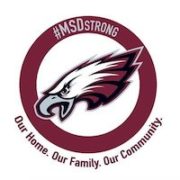How Rejection Sensitive Dysphoria Affects Neurodivergent Students Social Skills
But what if they don’t like me…
In school, it is not uncommon for children, teens, and young adults to face the feeling of rejection, yet, for neurodivergent students, they can take it exceptionally hard, especially in social situations if they have Rejection Sensitive Dysphoria (RSD). They may feel as if their peers are rejecting them simply because they do not want to play the same game as them or like something they like. Even if their peers still invite them to play a different game or share their own likes and interest, they may be deterred from joining because their perception makes them believe they have been rejected by them. This can then prevent them from wanting to socialize in general since the feelings their RSD give them are too painful or embarrassing, causing them to struggle to make friends in and out of school settings.
RSD traits can cause students to react harshly, causing them to scream, hit, or act irrationally with their peers, which can cause making and maintaining friendships to become difficult since friends typically do not want to be yelled at because of a disagreement. Although RSD can make children, teens, and young adults feel as if a situation is much more negative than it is, as they may not be able to manage it, they can become isolated and have a hard time socializing while growing up. This can then cause other issues such as anxiety, depression, loneliness and much more, but The Support for Students Growth Center is equipped to help them manage their RSD traits.
At the Support for Students Growth Center, we provide the social, behavioral, educational, emotional, and executive functioning skills children, teens, young adults, and their families who may be Neurodivergent or not need for a happy and successful life in and out of school settings. Our team of professionals offers individualized and family coaching/counseling and social skills groups to help teach skills such as how to manage RSD to ensure parents do not have to worry that their kids will be unable to make and maintain a functioning independent life on their own as they grow up. So, if your child is struggling with skills like the ones listed above and much more, the SSGC is equipped with the tools to help.
Click here and call now to schedule your FREE 20-minute individualized screening
Dr. Eric J. Nach, Ph.D., M.Ed., A.S.D.C., is a Developmental and Behavioral Specialist who specializes in Autism, ADHD and related disorders. Dr. Nach is the founder of the Support for Students Growth Center and College Life Skills Program where he and his team of professional’s help develop the Emotional Maturity, Executive Functioning, Life Skill and Social Abilities of children, teens, young adults and college students and those high school students preparing for college.





